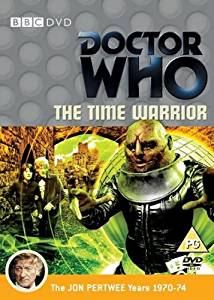| Doctor Who | |
|---|---|
| Season 11 | |
 Cover art of the Region 2 DVD release for the first serial of the season | |
| Starring | |
| No. of stories | 5 |
| No. of episodes | 26 |
| Release | |
| Original network | BBC1 |
| Original release | 15 December 1973 – 8 June 1974 |
| Season chronology | |
The eleventh season of British science fiction television series Doctor Who began on 15 December 1973 with the serial The Time Warrior , and ended with Jon Pertwee's final serial Planet of the Spiders . The season's writing was recognized by the Writer's Guild of Great Britain for Best Children's Drama Script. [1] This is the Third Doctor's fifth and final series, and also the last consecutively to be produced by Barry Letts and script edited by Terrance Dicks. Both Letts and Dicks would work for the programme again, however - Letts in Season 18 and Dicks on future stories, e.g. Horror of Fang Rock .